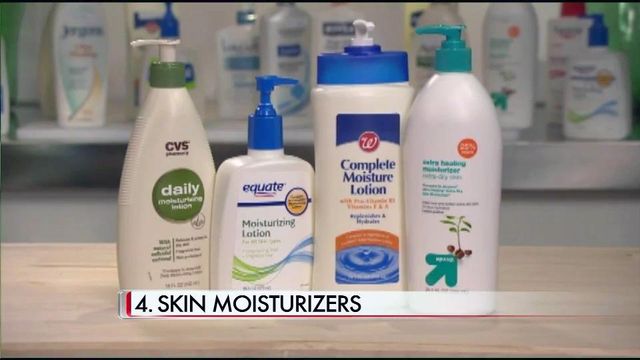Moisturizers, cover mitigate winter weather's effect on skin
Certain moisturizers, as well as proper clothing, can help ease the itching, flaking and dryness of skin in winter weather.
Posted — UpdatedFrigid winter weather is hard on skin.
Cold air can cause skin to flake, crack and itch, but there are ways to cope with the discomfort of winter skin woes.
Dr. Allen Mask said one of the best ways to combat dry skin is to drink more water. The body needs water for many purposes, including providing moisture for skin.
Not only does it help soothe dry skin, but it also helps keep breathing passages from drying out.
With cold dry air, chapped lips might be the first sign of problems.
Keep lip balm handy at all times, and use it frequently. Beeswax or petroleum jelly also works well.
Hands are also hit hard by winter air. Frequent hand washing to prevent catching or spreading germs also increases dryness. So, use a glycerin-based moisturizer every morning, before you go to bed and whenever your hands feel dry.
Choosing a moisturizer can be confusing. Humectants, such as urea, glycerin, hyaluronic acid and popylene glycol, are oil free. They absorb water from the air.
Emolients, such as baby oil, mineral oil, plant oil and even petroleum jelly and lanolin, help replace oils in the skin.
Sunscreens with moisturizers can do double duty by protecting skin from harmful UV rays and adding moisture to prevent dry skin.
A shower can keep skin moist, but long, hot showers can actually pull water out of the skin. Short showers with lukewarm water are best for the skin. Using a moisturizer after drying off can help skin hold onto the water it absorbed from a shower.
"All the those efforts may fail if your skin is exposed to freezing cold air for too long," Mask said. "Be sure to bundle up in freezing temperatures, protecting the ears, the nose, fingers and toes. Also remember to wear gloves, because freezing temperatures can do real damage to your skin."
Mask added: If home-based techniques for moisturizing skin don't work, and skin irritations persist, it might be an underlying condition that requires professional medical attention from a primary care doctor or dermatologist.
• Credits
Copyright 2024 by Capitol Broadcasting Company. All rights reserved. This material may not be published, broadcast, rewritten or redistributed.






